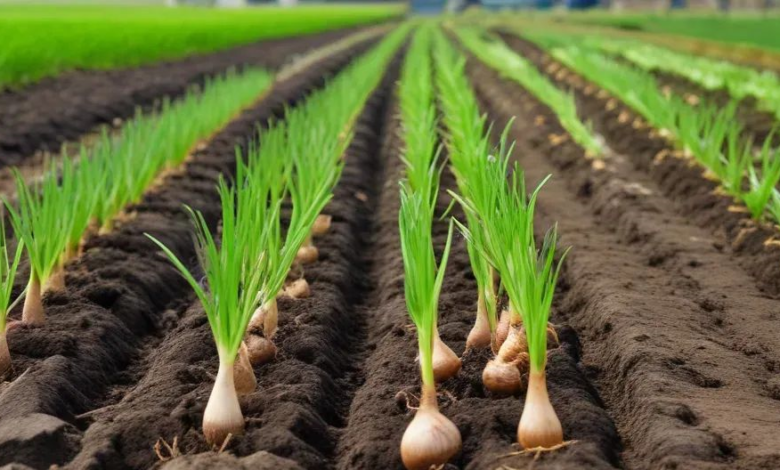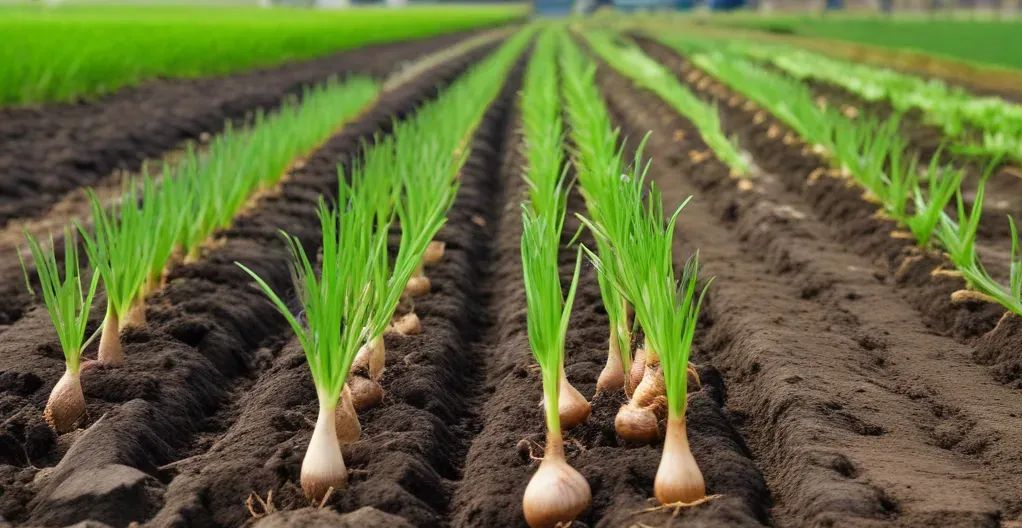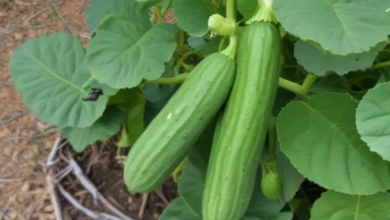The Use of Onion Companion Plants and Why They’re Beneficial
Elevate your onion patch with strategic companion planting.

An old-fashioned method of gardening known as “companion planting” is deliberately matching plants in order to boost their growth, discourage pests, and improve the garden’s general health. If you want more onions, less bugs, and more room in your garden bed, then you need to plant them with the correct partners. Learn how to grow onions in harmony with other plants by reading this article’s breakdown of the many companion plants for onions and the advantages they offer.

Companion Plants for Onions:
Carrots
One advantage of growing carrots and onions together is that their root systems are complimentary. It is said that carrots enhance soil structure, which in turn facilitates the growth and expansion of onions. Also, it’s a win-win situation since onions keep the carrot fly away and carrots keep the onion fly away.
Lettuce
The onion roots are shaded and their soil is kept cool and moist by the lettuce, which is a benefit in hot weather. On the flip side, onions keep aphids, a frequent lettuce pest, at bay. If you want to grow more crops in a smaller space, interplanting lettuce and onions is a great way to do it.
Peas
A plus for onion cultivation: peas, being nitrogen-fixing legumes, add nitrogen and other vital nutrients to the soil. If you want to boost soil richness and plant health, grow peas with onions. Onions also keep pests away from pea plants, such as onion root maggots.
Spinach
One advantage of growing onions in soil that contains spinach is that it acts as a living mulch, keeping weeds at bay and retaining soil moisture. The thick spinach leaves act as a canopy over the soil, keeping weeds at bay and lowering the rate of water loss. The ladybugs and other beneficial insects that spinach attracts feed on onion pests like aphids.
Chamomile
Advantage: Chamomile has a reputation for keeping pests like mosquitoes, flies, and aphids at bay. To lessen the likelihood of pest damage to onion plants, put chamomile near them. Bees and other pollinators are helpful in onion pollination and seed set, and chamomile is a great way to attract them.
Beets
Planting beets and onions side by side is sure to yield the best results. Soil structure and aeration are both improved when beets are planted in areas where the soil is compacted because of their deep taproots. Meanwhile, onions keep pests like beetroot maggots away from beet plants. Maximizing garden bed space and increasing crop diversity are both achieved by interplanting onions and beets.
Benefits of Companion Planting for Onions:
- Reducing the need for chemical pesticides and establishing a healthier garden ecology, companion plants can help repel pests that are damaging to onions.
- Soil Fertility: By fixing nitrogen, improving soil structure, and suppressing weeds, some companion plants, such as deep-rooted vegetables and legumes, help to increase soil fertility.
- You can make the most of your limited garden space by interplanting onions with compatible partners. This can increase yields and diversity of crops within the same area, all while making the most of your gardening efforts.
- Better Seed Set and Bigger Bulb Development: Onions benefit from companion plants that entice pollinators like butterflies and bees, which increases the rate of pollination on onion flowers.
Conclusion
There are many advantages to growing onions in close proximity to one another, such as reduced pest populations, healthier soil, better pollination, and more efficient use of space. Your onion patch can thrive in peace with nature if you take the time to learn about its inhabitants and the parts they play in the garden ecology. Find out what works best for your garden by experimenting with different companion plant combinations. Then, relish in the abundant harvests that come from a balanced planting design.
FAQ,s
What should not be planted next to onions?
Onions not only discourage pests like rabbits, aphids, and Japanese beetles, but they also enhance the flavor of the plants they are planted with. On the other hand, onions aren’t the best companions for peas, pole beans, bush beans, and asparagus.
Can you plant onions next to cucumbers?
As a bonus, cucumbers benefit from companion planting with members of the allium family, whose pungent aroma keeps pests at bay. Nearby onions and low-growing chives provide excellent companion plants for cucumbers. In addition, cucumber salads in the summer are perfect for topping with chives and onions.
Can you plant onions next to potatoes?
Plants that grow well together, such as onions and potatoes, make wonderful companions. By following this companion planting instructions for onions and potatoes, you can avoid making some typical planting blunders and ensure a bountiful harvest.
Do onions need full sun?
For optimal growth, all onions need full sun. Delays in bulb formation might occur if the growth season is characterized by overcast sky and chilly temperatures. As a general rule, short-day onions are sweet or mild.




